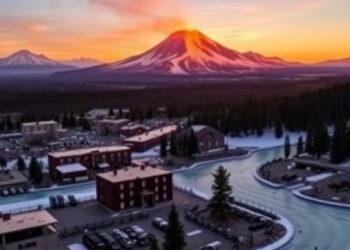(Santa Barbara, Calif.) — The field of science aims to be objective, repeatable and justified in its choices and methods. These principles are what distinguish accepted scientific findings from pseudo-science. Yet the experience of learning and working in the field of science, including graduate school activities and scientific conferences, might not always follow the same principles. These practices and gatherings of scientists may be just as organic and random as evolution.
(Santa Barbara, Calif.) — The field of science aims to be objective, repeatable and justified in its choices and methods. These principles are what distinguish accepted scientific findings from pseudo-science. Yet the experience of learning and working in the field of science, including graduate school activities and scientific conferences, might not always follow the same principles. These practices and gatherings of scientists may be just as organic and random as evolution.
Have the traditions of science — rituals of poster presentations and tenure positions — evolved by chance? Would the origins of these practices pass the scientific test of repeatability? To echo Stephen Jay Gould (and Cher): if we could turn back time, would the same practices emerge? What other practices could have emerged?
Researchers Alexandra Phillips, of UC Santa Barbara and UCSB’s National Center for Ecological Analysis and Synthesis, Preston Cosslett Kemeny of TC Chamberlin and the University of Chicago, and Dan Johnson of SNA International, posed these questions to participants at the 2022 American Geophysical Union (AGU) meeting in Chicago, Illinois.
It was a fun thought experiment, said Phillips, NCEAS science and policy communications officer and assistant teaching professor of environmental communication at the UCSB Bren School. But it is also a critical one. “Geoscience is the whitest of all STEM disciplines,” she said, “and we often discussed how the practices in our field have led to this systemic exclusion.”
Phillips, Kemeny and Johnson ultimately distilled their own brainstorming and the groupthink from AGU into 14 alternative practices. Their discussion did pass the test of science: Phillips and her colleagues’ research was recently published in the journal Perspectives of Earth and Space Scientists.
“Researchers take a lot of inherited tradition for granted and occasionally confuse existing practices, even when known to be disadvantageous for some or all people, for optimal systems,” said Kemeny, the article’s lead author.
“It was a really different process than any paper I have written before because we weren’t trying to find consensus,” said Phillips. “We were actively engaging in ideas that would be polarizing because we wanted this paper to generate thoughtful discussion.”
The 14 alternative practices apply to a full range of academic settings, from graduate student experiences to grant applications to conference culture and faculty careers.
“There is no guarantee that replaying the tape would result in more equitable academic structures,” the authors write. “However, by considering alternative practices, we begin to evaluate why current academic structures exist, who they might be benefiting, and how they might be modified to ensure efficient, open, and inclusive science.”
The authors are transparent about the difficulty of implementing some of the practices. “These alternative practices are meant to be imaginative, not prescriptive,” they write.
“There are some ideas in the paper that I don’t agree with — and some that I want to see implemented yesterday — and those differ across the authors,” said Phillips.
“We want people in faculty meetings or lab meetings to ask, what practices are working for us? What traditions have we inherited and which have we chosen? How are these decisions impacting who becomes a successful scientist?”
The authors will continue to collect input from the field. A survey regarding the 14 alternative practices is open for the next 18 months and can be accessed here.
Journal
Perspectives of Earth and Space Scientists
Article Title
Replaying the Tape of Academia: Fourteen Alternative Practices for the Physical Sciences
Article Publication Date
14-Jul-2024




